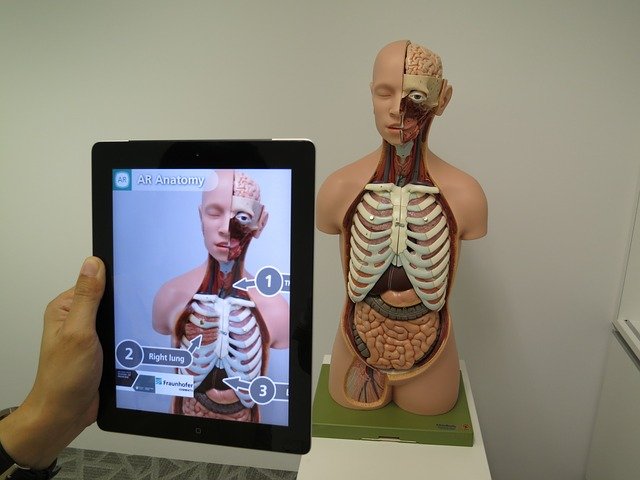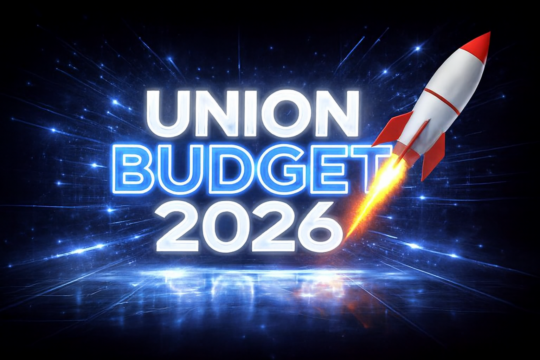This EdTech startup has an experiential learning app that brings STEM learning alive through immersive videos, interactive augmented reality, and 3D simulations for the K-12 segment.
As the significance of STEM subjects increases in the K-12 segment, how STEM subjects are to be imparted holds equal importance. In India, almost 32% of overall students opt for STEM. However, lessons in STEM can be a tad dry and hence hard to grasp.
The EdTech industry is trying to spice up STEM subjects for students in the K-12 segment with technologies like AI, AR/VR, and Mixed Reality. A research in 2017 found evidence that embedding AR in authentic inquiry promoted student engagement and motivation in developing the practical skills for medical surgery, inspiring them to select STEM-related majors in university.
Practically, an EdTech startup by Hyderabad-based 3rdFlix Visual Effects Pvt Ltd., is an intelligent, interactive, and immersive learning app for students of classes 6-12 with a focus on STEM learning. It is an experiential learning app that brings learning alive through immersive videos, interactive augmented reality, and 3D simulations.
The Tech Panda spoke to Charu Noheria, Co-Founder and COO of Practically, about how they are using AR and other emerging tech to motivate and retain interest in STEM.

Charu Noheria
We aim to bring modern methods to everyday teaching process and empower teachers to use the power of visualization and experiential content to transform dry subject areas into jaw dropping experiences
“Students find STEM subjects very dry, rote, and boring, and educators have few means to increase students’ engagement and rate of retention. Students have access to learning resources which are not interactive, leading to less than 30% rate of retention when learning foundational concepts. This disengagement leads to lack of interest in key subjects,” she explains.
“We aim to make everything that a learner needs available on a single app, helping the parent pay for a single product containing visual content, simulations/AR, test prep, analytics/feedback, gamification, doubt resolution, AI-virtual assistant, live classes, coding, summer programs, etc.” she adds.
What They Do
Practically uses new age technologies like AI, ML, Deep Learning, Computer Vision, and reality technologies for AR and VR content, which is setting them apart in a competitive space. They have a 24×7 Seek Help feature for doubt resolution, where students can reach out to subject experts on the platform.
Students find STEM subjects very dry, rote, and boring, and educators have few means to increase students’ engagement and rate of retention
Also, the Practically School Solution, a B2B2C offering, gives schools and its teachers access to the Practically teacher app free of cost. Teachers can access 3000+ videos and 1000+ Simulations/AR and features like reports, test-preps, polls, analytics, assigning homework, etc. The app covers universal curriculum across Math and Science for 6th to 12th grades.
“Our vision is to reshape the way the world learns. We aim to bring modern methods to everyday teaching process and empower teachers to use the power of visualization and experiential content to transform dry subject areas into jaw dropping experiences.
The Practically USP
The startup offers an edge over other learning apps by enhancing conceptual understanding and improving retention of concepts with features like life-like video content, hands-on learning, experiential learning, live classes, and AI assistant.
They profess to be an immersive and experiential one stop solution for students, parents, teachers, and schools. Their library boasts of thousands of world-class 3D videos, AR experiences, and simulations. They have a competitive pricing strategy based on a freemium-subscription model, with subscriptions ranging from INR 1300 to INR 3000 per month based on usage.
Theories can be brought to life by doing tasks and projects that bridge the gap between rote and practical learning
“Our mentors are highly qualified individuals from top universities with decades of teaching experience and are experts in their respective fields. We also have stellar after-sales support that ensures every student is getting the best out of Practically to suit their unique needs,” says Noheria.

She says that they count some of the top EdTech companies in the K-12 space as their competitors in India, since they operate in the same segment catering to the same student population. Internationally, they compete with companies like Mozabook and Lifeliqe in the experiential content space.
Growth Story
Since the launch of the Practically app in April 2020, the brand and business have both grown 65%. Mostly recently, they raised US$4 million in a Pre Series B round led by Siana Capital and YourNest Venture Capital. Their app has engaged 330K students so far. 200 top schools and 18,000 teachers, nationally as well as internationally, use the Practically School Solution. They have also entered the Middle East market.
An experiential learning classroom stresses on not just learning but learning practically. It targets the acquisition of cognitive skills through critical thinking, problem-solving, and decision making
Recently, the startup was awarded the EdTech Startup of the Year at Startup Awards 2021 by Franchise India and Entrepreneur India magazine. They were also adjudged the Most Innovative STEM Solution by Elets DigitalLEARNING magazine at the World Education Summit 2021.
Origin and Inspiration
The startup was founded in 2018 by Noheria, Subbarao Siddabattula, Founder and CEO, and Ilangovel Thulasimani, Co-Founder and CTO. Noheria recalls that the hallways of their workplace were where those very first conversations of Practically began when she and her co-founders were colleagues at Lumeris Inc., in the USA.
“When my co-founders and I were bouncing off ideas to pursue, it became apparent that we all shared the excitement for tech-based, non-traditional methods of teaching and learning. We all wanted to make some of those very dry subjects more interesting, engaging, and fun for learners around the world,” Noheria reminisces.
We all wanted to make some of those very dry subjects more interesting, engaging, and fun for learners around the world
She also recalls the stress in learning from her own days as a student.
“Being part of the competitive rat race for IITs in India back in the day, all I remembered from that experience was stress in learning. I dropped a year, switched five engineering streams, and changed three colleges during the 18 months I struggled to get my footing right. Unconsciously, this left a lasting mark on me and I was always attracted towards unconventional ways of learning, which are away from rote learning. This inspired me to develop a model which will make education easy as well as a fun activity,” she adds.
Philosophy
Practically is built on Edgar Dale’s ‘Cone of Learning’, according to which, we retain 10% of what we read, 50% of what we see and hear, and increasingly more to 90% when we learn by doing.
“The more dramatic the experience, the more lasting the recall. Most concepts in STEM, which are dry on the surface, can be taught in a very fun and interactive way with experiential learning,” says Noheria.
She adds that there is a pedagogical paradigm shift in education in learning environments and teaching delivery methods of online courses. Blended/hybrid formats are increasing access to global, lifelong learning, while the traditional Indian classroom is characterized by repetition and memorization of content of prescribed textbooks.
We believe the technology adoption in the education sector is yet to see its peak, and what started as a mad rush to adopt technology during the pandemic is likely to continue and sustain well beyond the pandemic years
“An experiential learning classroom stresses on not just learning but learning practically. It targets the acquisition of cognitive skills through critical thinking, problem-solving, and decision making. This approach accelerates learning,” she explains.
“Theories can be brought to life by doing tasks and projects that bridge the gap between rote and practical learning. ‘Learning by doing’ is effective and it has a positive effect on the cognitive, affective, and physical domains of learners,” she adds.
“We believe the technology adoption in the education sector is yet to see its peak, and what started as a mad rush to adopt technology during the pandemic is likely to continue and sustain well beyond the pandemic years, making products such as Practically a household name,” she says.
Future Plans
While their focus so far has been on Andhra Pradesh and Telangana in India, the startup is working on expanding pan-India in 2021, adding over 2000 employees by December 2021. They will also be entering the K-5 segment soon along with grades 6-12.
“With the latest round of funding, we expect to take Practically to the rest of the country by the end of 2021. Outside India, the Middle East is our focus market, as we have received positive responses to our product, and we will be partnering with many more schools there in 2021. We are also looking to move to another international market by the end of this year,” says Noheria.
In addition, Practically’s immersive animated video content can be easily localized into any language. Although the near-term plan is to expand into other English-speaking countries globally, they are also exploring with partners in countries where there is a need for content in another language.












